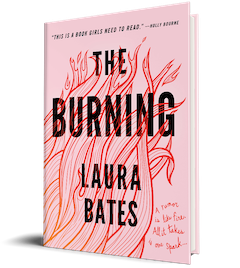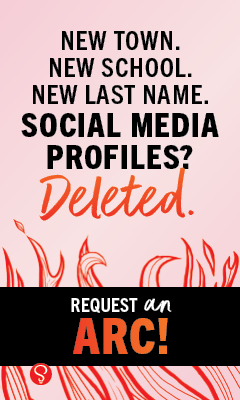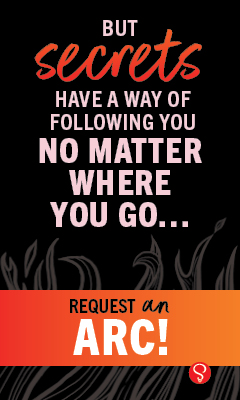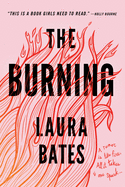The Burning
by Laura Bates
Feminist activist Laura Bates is no stranger to the stories of girls and women who experience gender inequality and cruelty. As founder of the Everyday Sexism Project and author of several nonfiction books (Everyday Sexism; Girl Up; Misogynation), she is helping make a cultural shift away from the centuries-old tolerance for sexist attitudes and behaviors. The Burning, her debut work of young adult fiction, could just as easily be nonfiction. Deeply researched and drawing on the countless experiences of girls and women around the world, the novel pulls no punches.
Anna Clark is looking for a fresh start. After a calamitous year in which her father died of cancer and her boyfriend shared nude pictures of her on social media--which led to a bullying campaign--she and her mother moved from Birmingham, England, to a small village in Scotland. Their hope was that they would leave everything behind, especially Anna's unwarranted reputation as a "slut." Unfortunately, the Internet has a way of catching up with a person and soon enough, Anna's fledgling new life as a regular 15-year-old girl is thrown into chaos. This time, however, investigating a centuries-old tragedy for a school history report helps keep her from being completely engulfed in her retraumatization.
While researching, Anna comes across a footnote in a book that refers to a mid-1600s witchcraft trial in her village. Intrigued, Anna digs deeper, discovering fragments of information about Maggie Morgan, a 17-year-old girl from a fishing family, who had the misfortune to catch the attention of a local nobleman. Unaccustomed to having his advances spurned, especially by girls of lower social status, he pursued her even when she said no. He raped her and, when she could no longer hide the resulting pregnancy, she was punished and humiliated by the village ruling council and citizens, who knew better than to accept her claim that the baron's son was the father. When the nobleman was lost at sea after the baby was born, the villagers accused Maggie of witchcraft.
Anna relates all too well to Maggie's wrongful punishment and humiliation. Her hands are full and her heart is breaking as she deals with her new classmates' cruel verbal and digital abuse; though Anna is growing accustomed to having friends abandon her, it still hurts. As she pieces together the story of the long-ago travesty, she begins having strange, lucid dreams, as if she herself were Maggie. Anna becomes obsessed with these visions, eager to learn more of Maggie's story: "At night I hurtle through the terrifying ordeal of Maggie's world. By day, I hurtle through a terrifying ordeal of my own."
Though her local research source minimizes Maggie's punishment and murder by saying "these were different times," Anna knows better than most just how untrue this statement is. The lives of Anna and Maggie, four centuries apart, come into parallel formation. Each is shamed and silenced not by what she herself did, but by something a boy has done to her. Each grows isolated as friends distance themselves. And, despairing, each descends into self-hatred and guilt. Anna: "Nobody wants to be associated with a slut." Maggie: "If only your neighbors knew their taunts pale into insignificance beside the harshness of the words you hurl at yourself."
Although The Burning is packed with the kind of ideas and situations that could populate a dissertation, it reads as a painfully realistic, spellbinding novel. For example, soon after her new classmates discover her past, Anna stumbles upon a "fierce knot of gossip" outside her classroom: "Just as well [her dad] doesn't have to die of embarrassment at his daughter tramping around all over the internet." Anna's emotions churn. "I feel something inside me snap. Fury fills me like rocket fuel, propelling me forward, out of my hiding place, ready to... I don't know what... ready to explode, or hit them, or scream that it wasn't like that, that I didn't do it for attention, that I never wanted any of this." Like real people living in a complex world, the characters live in shades of gray, feeling guilt and shame right alongside their outrage and self-righteousness.
Readers will be drawn in from page one of Laura Bates's well-paced novel, riveted by the side-by-side stories of wronged girls living centuries apart. Bates plants readers squarely in the minds and hearts of two girls who, like so many, swiftly and all too easily find themselves on the wrong side of justice. Woven into Anna's first-person narrative are second-person flashbacks to Maggie's lifetime, evoking the infuriating side-by-side impotence of being trapped in a culture of gender inequity. Readers will cheer when someone finally does speak up on behalf of girls, and maybe even pick up a pointer or two on how to fight back against sexism. --Emilie Coulter








